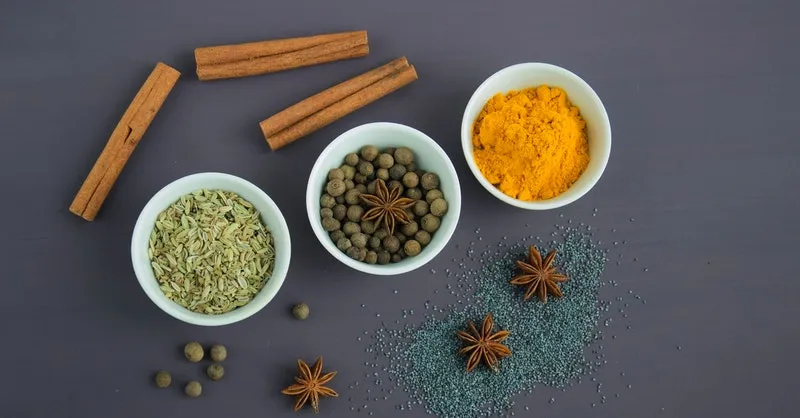
Case Study: How Swiggy Desi Masala campaign 's CTA reached 13M+ users - Social Samosa
Case Study: How Swiggy Desi Masala campaign ‘s CTA reached 13M+ users
Jul 28, 2021
Swiggy Desi Masala campaign focussed on changing the derogatory trend of women being termed as desi masala all over the internet, while owning the conversations around ‘Masalas’ – a keyword relevant for the brand.
This case study explores how Swiggy Desi Masala campaign made an attempt to change the supposed derogatory search results around the keyword ‘Desi Masala’, during women’s day 2021. As an extension to the campaign, Swiggy directed users towards their latest Instamart feature.
Category Introduction
Prior to COVID-19, Google and Boston Consulting Group (BCG) projected India’s online food ordering market growth at a compound annual growth rate of 25-30 percent to touch $7.5-8 billion by 2022, up from $4 billion in 2019. During the pandemic, customers preferring to stay safe indoors further led to a surge in online orders.
Brand Introduction
Swiggy’s mission is to elevate the quality of life for the urban consumer by offering convenience. The brand has partnered with over 150,000 restaurants spread across 500+ cities in the country. Swiggy also offers instant grocery delivery service Instamart, pick up and drop service Swiggy Genie, meat delivery, and daily grocery delivery service Supr Daily.
Swiggy Desi Masala Campaign Summary
Desi Masala is a term that should ideally bring images of spices to mind. However, search images on the Internet are inundated with unsavoury images of women; meant in a supposed demeaning sense with captions such as ‘Hot Desi Masala’ and ‘Desi Masala Girl’.
In a bid to change this search result, Swiggy, ahead of International Women’s Day in 2021, launched an awareness campaign that aimed to change the search results around the aforementioned keywords. It urged netizens to flood the Internet – websites, blogs, forums, and social media platforms, and the works, with pictures of authentic Indian spices and tag it as ‘Desi Masala’ thus not only attempting to change a derogatory trend but owning conversations around the term, which is relevant to them as a brand.
Objective
The aim was to highlight, call out, and inspire a change with regard to the objectification of Indian women as ‘desi masala’.
Creative Idea
To commemorate Women’s Day, Swiggy urged netizens to flood the Internet with posts and pictures tagging authentic Indian spices on websites, blogs, forums, and social media platforms because search engines pick up on what everyone is talking about.
Women’s Day was specifically chosen to start the Swiggy Desi Masala awareness campaign, as an attempt to leverage the topicality to put the focus on sexism and objectification of women, even in relation to food – which is otherwise gender-neutral.
Also read: Case Study: How Burger King Whopper launch campaign reached 11.6M users
Execution
As part of the Swiggy Masala Desi Masala awareness campaign, the announcement posts were uploaded from the brand’s social media handles on Instagram and Twitter to drive more participation from netizens and encourage people to tag the correct desi masalas on their social media handles.
Taking it a step further, influencers amplified the initiative with the post of their choicest masala, helping to establish the actual meaning of the Indian spices or ‘desi masala’
Swiggy desi masala awareness campaign was amplified in the media while urging more people to join the cause and make a difference. This also enabled more awareness of the topic.
The brand executed another amplification activity with Swiggy Instamart from March 5th – March 8th 2021. The customers who placed an Instamart order during the campaign days received a free packet of a Kohinoor Masala powder along with a write-up of the campaign with a CTA – the receiver was requested to post an image of the masala to help clean up the search result. The activity was conducted in Bangalore and Gurgaon and garnered positive sentiments on social media.
Results
- The campaign’s reveal witnessed wide participation from influencers and users, all rallying for a change.
- The digital press organically picked up the campaign, and their article’s images of desi masala began to feature on image search front pages.
- In less than 48 hours our call-to-action reached 13M+ people, resulting in a 9175% increase in desi masala mentions – the majority of which featured Indian food images.
- Search engine homepages displayed the campaign’s call-to-action as its first result, during the 48 hours of the campaign.
- User-generated content created the hashtag #desimasla, which greatly contributed to cleaning up Instagram’s previous #desimasala hashtag content – which also happened to have women tagged to it.
- Sparked a conversation amongst brands, notable personalities, and people on a manifestation of sexism that was hidden from the world, up till our campaign.
Quotes
Shikha Gupta, Creative Director, Swiggy, said, “Gender bias runs deep in society even today. Chimamanda Ngozi Adichie mentions in her essay We Should All Be Feminists that when you do something over and over again, it becomes normal. We live with everyday sexism even without realizing it because it becomes a part of our idiom and our culture. With this campaign, we wanted to tackle one such instance of everyday sexism – that of calling women ‘masala’ – by making people realize just how absurd it is. True to Swiggy’s style, we got people talking about the issue – which in itself was a win. We then had them take it upon themselves to undo what’s been done over the year, by posting images of real desi masalas.”









